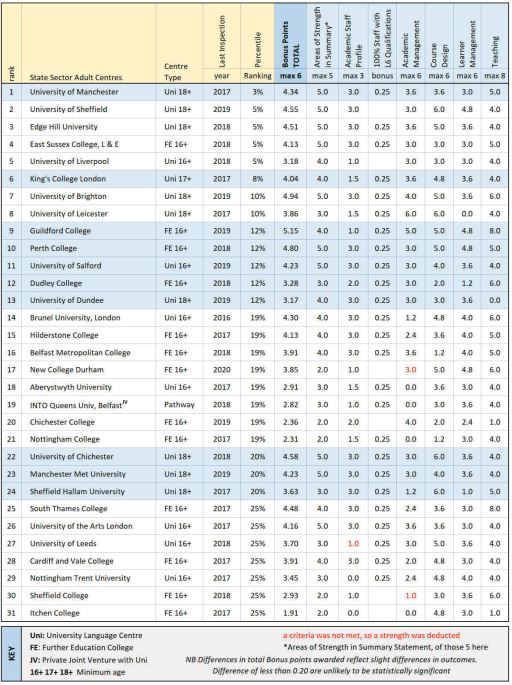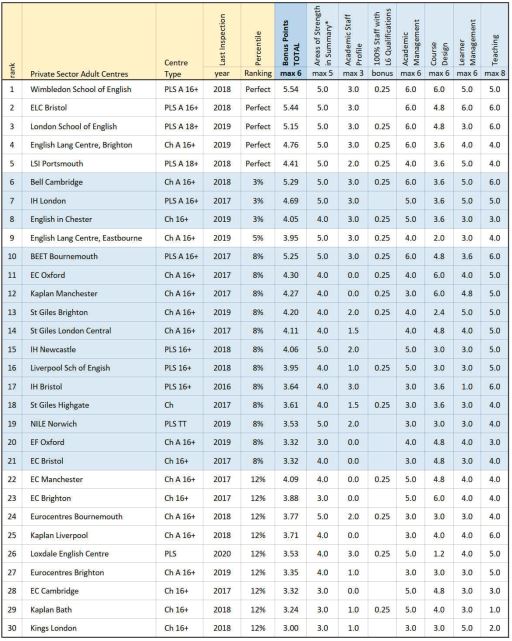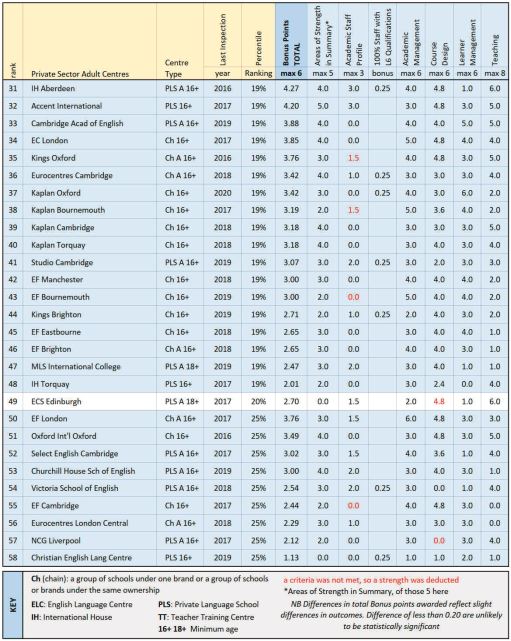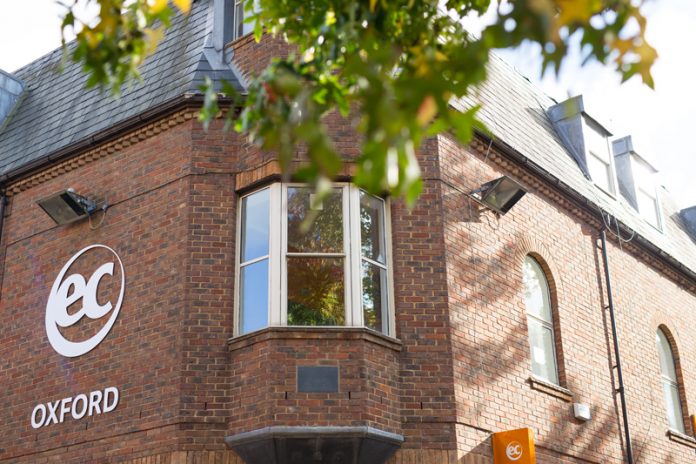Centres of Excellence score well in a range of areas but when it comes to teachers’ qualifications half of adult courses would fail accreditation in other English-speaking countries, Melanie Butler reveals
It is obvious why we need to differentiate between centres of excellence with the same scores when seven per cent of all UK accredited language centres have been awarded ten areas of strength, out of fifteen, by British Council Inspectors.
Clearly, we also need to focus on different aspects when it comes to differentiating centres for over-16s, as opposed to schools dealing primarily with children. For adult courses, we use Teaching and Learning as the area of differentiation.
Why? Because for most adult learners, the need for progress is generally urgent, in order to pass an exam, get a job or get into a university. Ideally, we would measure average student progress as they do in New Zealand but—as they found there—it is hard to measure language progress when students stay less than ten weeks. The British Council do not have a progress metric, but then the average adult stays in the UK just over five weeks.
So, we use the six areas inspected under the heading Teaching and Learning as a proxy. As we explain here, we do this by delving into the details in the centre’s full report, and awarding bonus points based on the inspectors’ score on individual criteria.
However, for adult centres, we also award a small bonus if all teachers have the level of education – first degree or equivalent, a Level 6 qualification in the UK terms, as the Council ‘generally’ requires.
“To achieve accreditation in the US, Canada, New Zealand, Australia and Ireland all teachers must be graduates—end of story.”
To achieve accreditation in the US, Canada, New Zealand, Australia and Ireland all teachers must be graduates—end of story. To work in a British Council teaching centre overseas, experienced non- graduate teachers must have a 12 week EFL diploma, a Level 8 qualification, which also makes you fully-qualified or TEFLQ under their accreditation rules.
But in the UK, 43 per cent of Centres of Excellence have at least one teacher who is neither a graduate nor fully-qualified. That rises to 57 per cent in private language schools. Yet only three of these centres are judged by inspectors not to have met the criteria; all had 25 per cent or more non-graduate teachers.
In the state sector, six out of 31 had non-graduates, and they are separately ranked (see below). Across the board, the state sector is consistently stronger in Teaching and Learning, with 90 per cent obtaining an area of strength in classroom observation, compared to 60 per cent in the private sector.
Although, if you look at the following grids, you will see that on average, the top 20 private language schools beat the state sector in terms of total bonus points, with five private schools scoring five or more out of six, compared to just one state sector provider. The international chains tend to do worse at Teaching and Learning than in other elements of inspection—the highest-scoring international chain school is EC Oxford, with 4.3 bonus points.
The Teaching and Learning scores in the private sector are fairly well correlated to the actual percentile ranking of the schools in terms of their overall number of areas of strength.
The better-ranked the private language school, the better the teaching and learning. This is not necessarily the case with the state sector, though if you insist on graduate teachers, and you don’t want to check our rankings, then state is your safest bet.
ADULT STATE SECTOR RANKINGS (Universities and FE Colleges)

ADULT PRIVATE SECTOR RANKINGS









